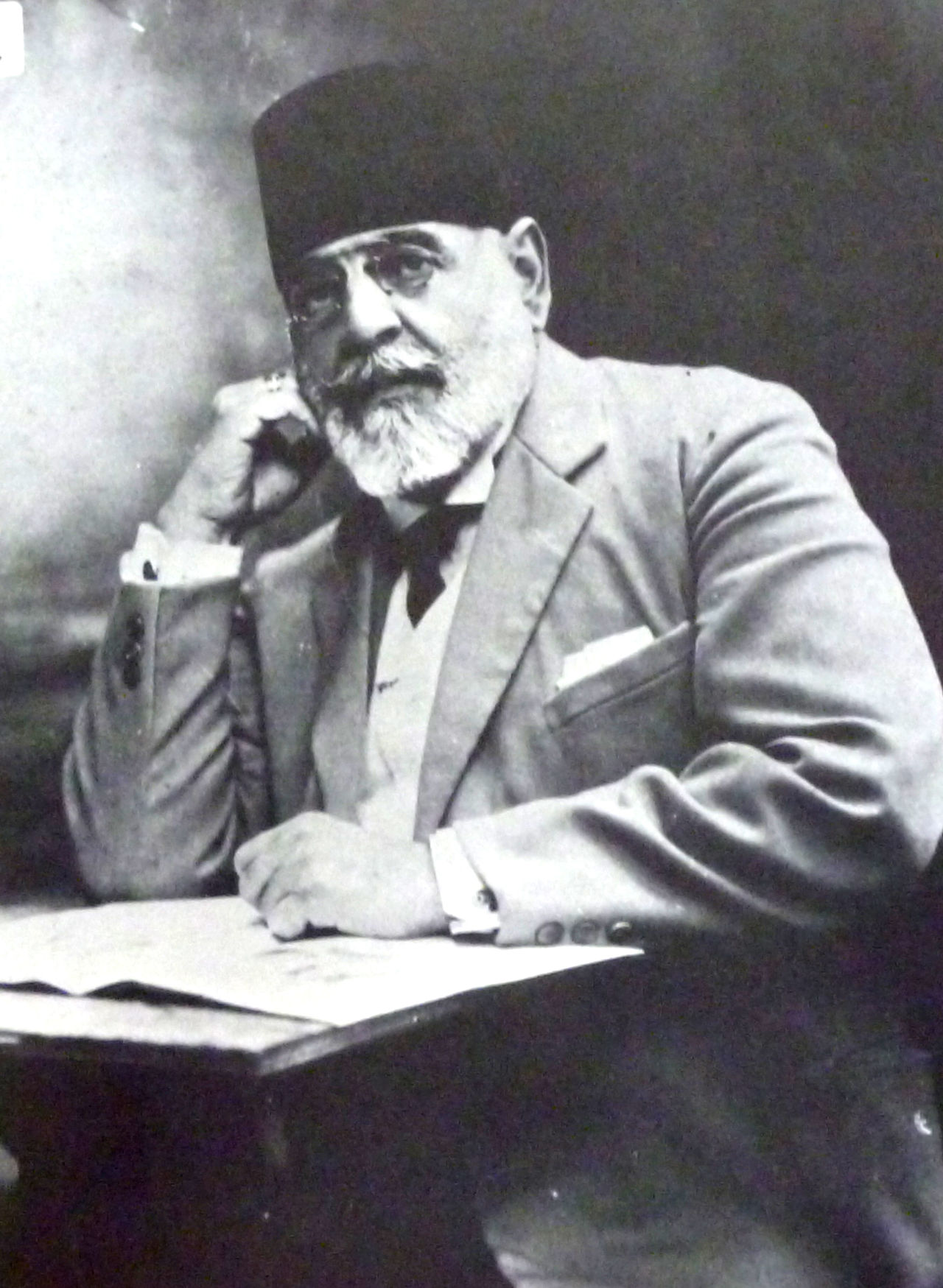AL-DAJANI, AREF BAKR AHMAD SULEIMAN (KNOWN AS AREF PASHA AL-DAJANI) (1860-1930)
Born in Jerusalem in 1860; moved to Istanbul where he studied Law and French; was known for his shifting political agenda in response to the events of the day; worked in the Ottoman administration and became governor of Deir El-Zor, Yemen, and Anatolia; one of four Palestinians on whom the Ottoman State bestowed the title of ‘Pasha’ while being alive (in addition to Musa Kathem Husseini, Abdul Salam Al-Husseini and Yousef Diya’ Eddin Al-Khalidi); mayor of Jerusalem from 1909-18; was a representative to the Administrative Committee of the Muslim-Christian Association (MCA) in 1918; with the arrival of the British Mandate, he cooperated with the British administration and was present in their meetings with Chaim Weizmann in April 1918; became Pres. of the MCA in Jerusalem in Jan. 1919 and, through the senior status of the association’s Jerusalem branch, the MCA’s overall Pres.; under this presidency he initiated the First Palestinian National Congress in Jerusalem in 1919; soon became one of the leaders of the movement ‘Palestine for the Palestinians’ which emerged that same year; expressed at the 1919 King-Crane Commission hearings the opinion that it was impossible to live with the Jews; was elected representative to the 3rd (Dec. 1920, Haifa) and 4th (May 1921, Jerusalem) Congress of the Arab Executive Committee for Jerusalem and Vice-Pres. at the 4th Congress; elected member of the Arab Executive Committee until 1922 and Vice-Pres. of the Palestinian Congress demanding an independent Palestinian state in federation with Syria; he gradually shifted his positions moving towards the opposition (which maintained closer ties with the British and Zionists in contrast to the Husseini-led Muslim Council); led the opposition until it split in 1926/27; failed in the municipal elections of 1927; adopted pro-Hashemite positions and became one of the Jerusalemite leaders who signed a petition on 24 August 1929 following the demonstrations of the Wailing Wall, asking Arabs to cease the uprising and maintain good relations with the British; died on 13 April 1930 in Jerusalem; buried at Al-Aqsa Mosque graveyard and was eulogized by Omar Al-Saleh Al-Barghouthi.

الدجاني، عارف بكر احمد سليمان (عارف باشا) (1860 - 1930) من مواليد القدس عام 1860 ؛ درس في اسطنبول القانون واللغة الفرنسية؛ عمل في البداية في الإدارة العثمانية وعين محافظاً لدير الزور ثم اليمن والأناضول؛ كان أحد أربعة فلسطينيين منحتهم الدولة العثمانية لقب “باشا” بينما كانوا على قيد الحياة (بالإضافة إلى موسى كاظم الحسيني، عبد السلام الحسيني ويوسف ضياء الدين الخالدي)؛ تسلم رئاسة بلدية القدس من عام 1909 - 1918 ؛ مثل اللجنة الإدارية للجمعية الإسلامية - المسيحية عام 1918 ؛ ثم رئيساً للجمعية الإسلامية - المسيحية بالقدس في كانون الثاني/ يناير عام 1919 ؛ سرعان ما أصبح أحد قياديي حركة “فلسطين لكل الفلسطينيين” التي انبثقت نفس العام؛ قدم شهادة أمام لجنة كينج كرين للتحقيق بأنه من المستحيل العيش في ظل وجود الحركة الصهيونية؛ انتخب ممثلاً في المؤتمر الثالث للجنة التنفيذية العربية للقدس كانون الأول/ ديسمبر 1920 ، حيفا ,والرابع ,أيار/ مايو 1921 ، القدس، ونائب رئيس في المؤتمر الرابع؛ انتخب عضواً في اللجنة التنفيذية العربية حتى عام 1922 ونائب رئيس المؤتمر الفلسطيني مطالباً بإقامة دولة فلسطينية مستقلة بالاتحاد مع سوريا؛ قاد المعارضة الفلسطينية “الداخلية” حتى انشقاقها عام 1926 / 1927 ؛فشل في الانتخابات البلدية التي جرت عام 1927 ؛ توفي ودُفن في مقبرة المسجد الأقصى في 13 نيسان/ إبريل عام 1930 بالقدس .
